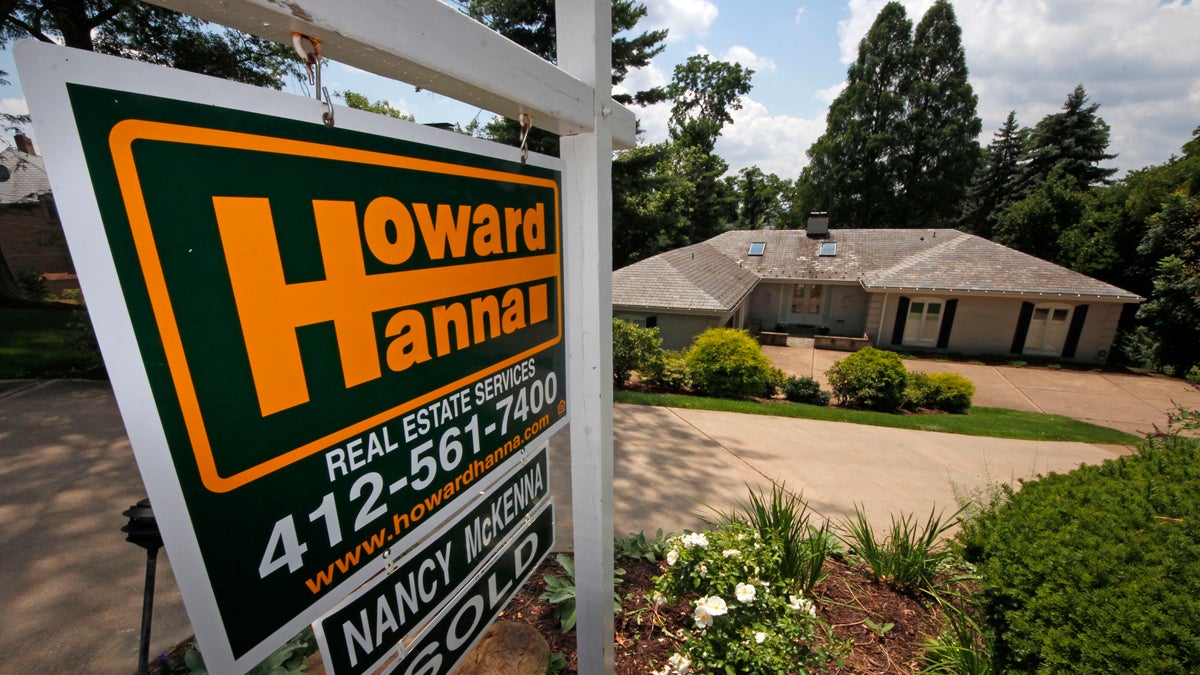Looking to realty transfer tax to fund Pa. affordable housing programs

In this photo, a home is for sale in Mt. Lebanon, Pa. (Gene J. Puskar/AP Photo)
A bipartisan group of senators is backing a plan that could boost residential housing stock by letting the real estate market do the heavy lifting.
Affordable housing hasn’t been an agenda-topper for Pennsylvania lawmakers this year faced with too many line items and not enough money.
But a bipartisan group of senators is backing a plan that could boost residential housing stock by letting the real estate market do the heavy lifting.
The state’s 1 percent tax on real estate transfers is being considered as a way to pay for it.
“The realty transfer tax had gone way down with the crash. As the market is recovering, it’s going back up again,” said Liz Hersh, head of the Pennsylvania Housing Alliance. Her group supports a bill to use future increases in revenue from that tax to fund home repairs, rehabilitation, blight demolition, and rental assistance. The tax wouldn’t go up from 1 percent under the proposal.
No piece of the tax goes toward residential housing now, Hersh said. Most of the tax collection goes into the state’s main pot of revenue.
“We think that if we’re going to have a realty transfer tax, and it’s coming from the housing market, it should go back into the housing market, and people in communities should benefit,” said Hersh.
A portion of the tax’s future earnings would be kicked into the state’s housing trust fund, which has only ever gotten money from the Marcellus Shale impact fee. As a result, it has only benefited counties with natural gas development.
“What we’ve seen is in the Marcellus Shale counties, this program has really been helpful. We’re trying to see how we can help the other counties,” said Sen. Dave Argall, R-Schuylkill. He said the Senate Urban Affairs and Housing Committee, which he chairs, could vote to send the bill to the full Senate this month.
Hersh said investing in affordable homes has the added benefit of providing an immediate economic advantage by boosting property values, creating jobs, and spurring demand for locally sourced goods needed for home repairs and blight demolition.
When people can’t find an affordable place to live, Hersh said, they might end up in a shelter, an emergency room, a nursing home, or a jail.
“It’s much more expensive not just to them, but to the taxpayer than having them have a safe, supported place to live where they can hold a job, go to school,” said Hersh. “Currently, by not spending this money, it’s actually costing us more as taxpayers than if we would make this modest investment.”
WHYY is your source for fact-based, in-depth journalism and information. As a nonprofit organization, we rely on financial support from readers like you. Please give today.

